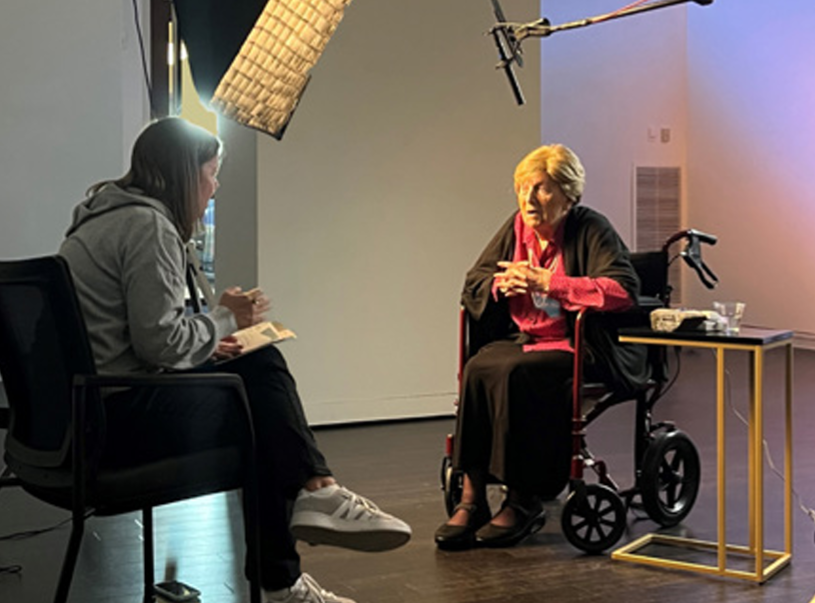The Midwest Center for Holocaust Education’s (MCHE) role in the exhibition “Auschwitz: Not long ago. Not far away.” has yielded a partnership with the Mizel Museum in Denver, Colorado, to collect testimony from Kansas City area survivors who had not previously shared their stories.
MCHE’s relationship with the Mizel Museum, a Jewish history museum in Denver, originated when teams from MCHE and the Mizel Museum met in Poland as participants in the first year of the Auschwitz Fellowship Program. Lacking a significant survivor population in Denver from which to collect testimony, the Mizel reached out to MCHE as a regional partner to identify survivors who had not participated in previous testimony projects but would now do so to enrich both the Mizel and MCHE archives.
“The Mizel Museum is honored to partner with the Midwest Center for Holocaust Education to record the testimonies of local survivors, as we recognize the immense importance of preserving and sharing the history of the Holocaust,” said Meg Robbins, education and special projects specialist at the Mizel Museum. “Together, we strive to educate and inspire individuals about the atrocities of the past, promoting tolerance, empathy, and social justice in our society today. Through our collaborative efforts, we aim to create a world where the lessons of the Holocaust are never forgotten, fostering a future rooted in compassion and understanding.”
MCHE provided a summary of survivor biographies to the Mizel team, which identified an initial group of three survivors who agreed to participate in a professional filming project conducted last December at Village Shalom. Testimony was collected from Peter Newman, an Austrian survivor who endured several flights from Nazi persecution before finding refuge in an Italian camp and then in the Fort Ontario camp in Oswego, New York; Adela Dagerman, a Hungarian survivor of Auschwitz and Stutthof; and Elizabeth Nussbaum, a Hungarian survivor of Auschwitz and Dachau.
“At MCHE, our archives don’t sit waiting on a researcher to find them – we actively incorporate testimony into every educational program we deliver,” Executive Director Jessica Rockhold said. “We personalize the history with the faces and voices of the people from our community who lived it. Being able to secure these three stories — ensuring that they are preserved, accessible to their families and will be available for our teaching — is a project of the highest order for us.”
MCHE Director of Education and Historian Dr. Shelly Cline was also recorded as a content expert, speaking on various historical topics, including antisemitism, gender in the Holocaust, eugenics and the T4 program. The recordings currently exist in a raw format suitable for research and archival purposes.
Future projects will allow MCHE to edit the testimony for classroom use and add it to each survivor's profile on the MCHE website.



